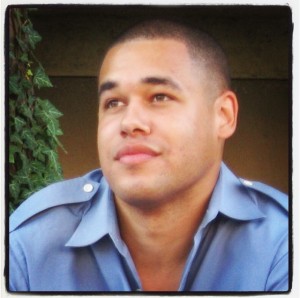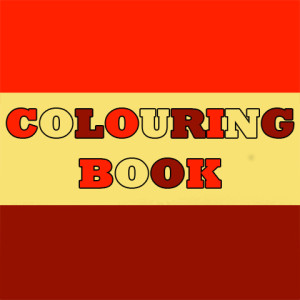Not to many people relate to the multiracial experience or the stories of their mixed friends, this is why forums for open discussion and collaboration are so important. These may take the form of literary festivals such as our beloved Mixed Remixed or may be told through artistic presentations. It’s not always easy explaining your personal experiences to a wider audience who may have no idea where you’re coming from, but the effort within this community is still invaluable to thousands around the globe. With that being said, let’s meet Jason Cuthbert – writer, director, filmmaker, and multiracial dude!

His upcoming documentary circling his, like many other biracials, experiences hopes to tackle the issue head on in a new and refreshing light. His team is a wonderfully diverse and highly educated group whose dedication and incredibly precise work ethic will bring you a film that is multidimensional in context and that combines subjective perspectives with objective experience.
Why is telling the story of the multiracial experience so important to your team, as is evident with your current project?
Multiracial and interracial experiences effect each and every member of our team…directly! My brother James, my sister Teisha and myself are biracial: African Trinidadian (father) and Caucasian American (mother). Francesca D’Amico (Ph.D. candidate, producer, researcher, educator), an Italian Canadian, not only teaches hip hop culture and African American history, but she has personally felt the social obstacles associated with her own interracial relationships. My sister-in-law Jessica Molina-Cuthbert (Ph.D. Candidate, researcher, educator) is El Salvadorian American, and is not only well versed in the effects of race and the American penal system, but she is also raising multiracial children with James. And my brother-in-law Fabian is Puerto Rican American (IT computer network systems) and has mixed race children with my sister. There is plenty of racial ambiguity going on over here.

What do you hope to achieve by producing such a dynamic film?
How would you describe it?

Race needs a real reality check. As rusty, ugly and outdated of a concept that it feels to be in 2015, why do we all still buy into it? “COLOURING BOOK: The Mixed Race Documentary” aspires to define, dissect, document and direct a dialogue about the value of race from not just those that study it, but by those whose identity exceeds its boundaries.
Do you think the growing multiracial community has the power to inspire positive change/enlightenment (through diversity and loving one another across colour lines)?
As mixed race people, we are the living, breathing proof that the concept of race doesn’t really work and may be unnecessary. We are those blurred lines, the colours in-between colors, the reds and blues that make purple. With “COLOURING BOOK: The Mixed Race Documentary” we are pushing to give a voice to those who feel just as excluded from the racial discussion as I did while growing up.
A question for Jason (if possible), what has it been like coming from a mixed family and how did it influence your creative perspective as a writer and director?
I grew to truly love the cultural crayon box that my family is. My love of all cultures comes from experiencing them first hand, whether they were part of my family tree or our diverse social circles. But as a child, I just wanted to fit in. Point blank. But being “normal” was never a reality for me. Racial boxes were rigid and I just didn’t fit. It also didn’t help that I rarely saw myself, a mixed kid, on screen in my favorite films and television shows. To this day, I write and relate to underdog characters in my stories, inherently, even if race has nothing to do with their story, because I felt like a strange foreigner in my own city.
What’s one of the biggest frustrations/misconceptions within the mixed community that you want to bring attention to with this film? If any.
I am not subscribing to stereotypes…like cancel that subscription…immediately. And just like any other racial category, we the “non-race” have some horrible stereotypes too. There is that super corny idea that mixed race people are more “beautiful” and “desirable,” and that we all feel we are better than everyone. Mixed race, or light skinned black, whatever you want to call me, …by no means do I feel that I’m any better than other humans of a darker complexion. You will not see me laughing at or co-signing dark-skinned jokes. Not-at-all. That divide and conquer mentality doesn’t work with me. Dark skin is gorgeous.
What can people who may not be directly part of the multiracial experience learn or take away from Colouring Book?
Our world is becoming more like a coloring book. Like those innocent years when kids use whatever colors they want, before they are taught to make tigers orange and make grass green. Mixed race may come to a shock to those that would rather see life neatly left in black and white instead of full color. We all need to get over ourselves. We have biases that we have learned, not that we were born with. Diversity training is not just for people in the racial majority. We ALL need to “colour” each other in by behaviors, talents and personalities rather than by which shade we were painted with in the womb. Race affects everyone. When diversity wins, we ALL win because it means we are relating to each other as a shared loving species, not as divided, hateful and inhumane beasts.
